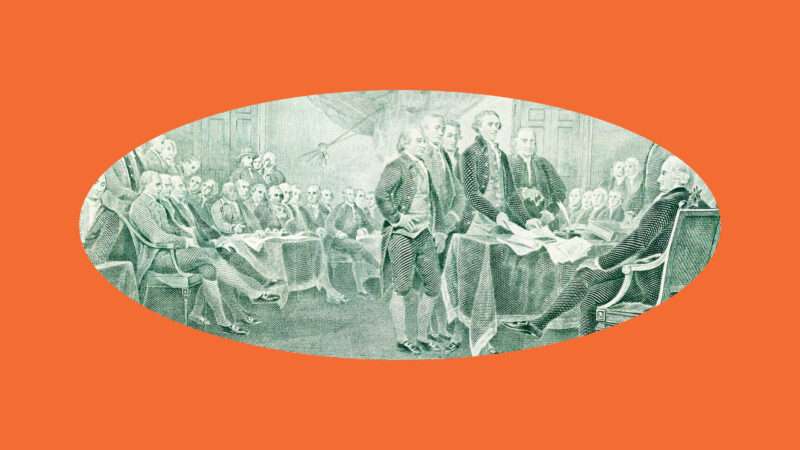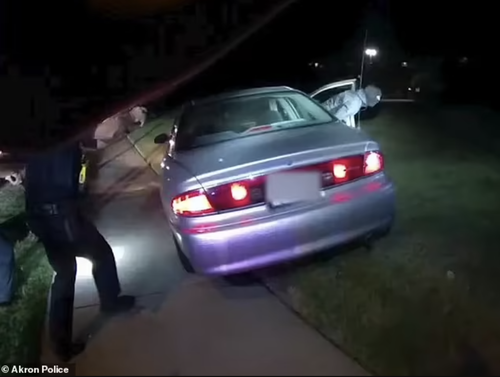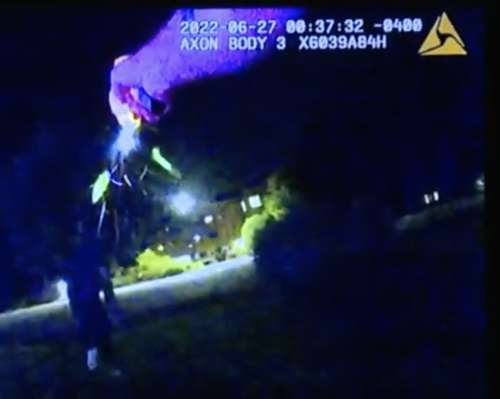The Declaration of Independence used to be read aloud at public gatherings every Fourth of July. Today, while all Americans have heard of it, all too few have read more than its second sentence. Yet the Declaration shows the natural rights foundation of the American Revolution, and provides important information about what the founders believed makes a constitution or government legitimate. It also raises the question of how these fundamental rights are reconciled with the idea of “the consent of the governed,” another idea for which the Declaration is famous.
In 1776, there was slavery in every one of the 13 states. The adoption of the Declaration, and the public affirmation of its principles, led directly to the abolition of slavery in half of the United States by the time the Constitution was drafted just 11 years later. The Rhode Island gradual abolition law of 1784 read:
in 1787, during the same summer that the Constitution was being drafted in Philadelphia, the principles of the Declaration also inspired Congress to unanimously abolish slavery in the Northwest Territory from which the states of Ohio, Indiana, Michigan, Illinois, Wisconsin and part of Minnesota were formed. Even all the Southern states supported this.
Later, the Declaration also assumed increasing importance in the struggle to abolish slavery in the rest of the nation. It became a lynchpin of the moral and constitutional arguments of the nineteenth-century abolitionists. As one New Yorker opposed to slavery wrote in 1797:
The Declaration was much relied upon by Abraham Lincoln and many others before him:
The Declaration had to be explained away–quite unconvincingly–by the Supreme Court in Dred Scott. And eventually it was repudiated by some defenders of slavery in the South because of its inconsistency with that institution.
When reading the Declaration, it is worth keeping in mind two very important facts. The Declaration constituted high treason against the Crown. Every person who signed it would be executed as traitors should they be caught by the British. Second, the Declaration was considered to be a legal document by which the revolutionaries justified their actions and explained why they were not truly traitors. It represented, as it were, a literal indictment of the Crown and Parliament, in the very same way that criminals are now publicly indicted for their alleged crimes by grand juries representing “the People.”
But to justify a revolution, it was not thought to be enough that officials of the government of England, the Parliament, or even the sovereign himself had violated the rights of the people. No government is perfect; all governments violate rights. This was well known. So the Americans had to allege more than mere violations of rights. They had to allege nothing short of a criminal conspiracy to violate their rights systematically. Hence, the famous reference to “a long train of abuses and usurpations” and the list that follows the first two paragraphs. In some cases, these specific complaints account for provisions eventually included in the Constitution and Bill of Rights.
In Our Republican Constitution: Securing the Liberty and Sovereignty of We the People, I explain how the Declaration encapsulated the political theory that lead the Constitution some eleven years later. To appreciate all that is packed into the two paragraphs that comprise the preamble to the list of grievances, it is useful to break down the Declaration into some of its key claims.
“When in the Course of human events, it becomes necessary for one people to dissolve the political bands which have connected them with another, and to assume among the powers of the earth, the separate and equal station to which the Laws of Nature and of Nature’s God entitle them, a decent respect to the opinions of mankind requires that they should declare the causes which impel them to the separation.”
This first sentence is often forgotten. It asserts that Americans as a whole (and not as members of their respective colonies) are a distinct “people.” To “dissolve the political bands” revokes the “social compact” that existed between the Americans and the rest of “the People” of the British commonwealth, reinstates the “state of nature” between Americans and the government of Great Britain, and makes “the Laws of Nature” the standard by which this dissolution and whatever government is to follow are judged. “Declare the causes” indicates they are publicly stating the reasons and justifying their actions rather than acting as thieves in the night. The Declaration is like the indictment of a criminal that states the basis of his criminality. But the ultimate judge of the rightness of their cause will be God, which is why the revolutionaries spoke of an “appeal to heaven”—an expression commonly found on revolutionary banners and flags. As British political theorist John Locke wrote: “The people have no other remedy in this, as in all other cases where they have no judge on earth, but to appeal to heaven.” The reference to a “decent respect to the opinions of mankind” might be viewed as a kind of an international public opinion test. Or perhaps the emphasis is on the word “respect,” recognizing the obligation to provide the rest of the world with an explanation they can evaluate for themselves.
“We hold these truths to be self-evident, that all men are created equal, that they are endowed by their Creator with certain unalienable Rights, that among these are Life, Liberty and the pursuit of Happiness. “
The most famous line of the Declaration. On the one hand, this will become a great embarrassment to a people who permitted slavery. On the other hand, making public claims like this has consequences—that’s why people make them publicly. To be held to account. This promise will provide the heart of the abolitionist case in the nineteenth century, which is why late defenders of slavery eventually came to reject the Declaration. And it forms the basis for Martin Luther King’s metaphor of the civil rights movement as a promissory note that a later generation has come to collect.
Notice that the rights of “life,” “liberty” and “the pursuit of happiness” are individual, not collective or group rights. They belong to “We the People”—each and every one. This is not to say that government may not create collective, positive rights; but only that the rights that the next sentence tells us are to be secured by government belong to us as individuals.
What are “unalienable,” or more commonly, “inalienable rights”? Inalienable rights are those you cannot give up even if you want to and consent to do so, unlike other rights that you can agree to transfer or waive. Why the claim that they are inalienable rights? The Founders want to counter England’s claim that, by accepting the colonial governance, the colonists had waived or alienated their rights. The Framers claimed that with inalienable rights, you always retain the ability to take back any right that has been given up.
A standard trilogy throughout this period was “life, liberty, and property.” For example, the Declaration and Resolves of the First Continental Congress (1774) read: “That the inhabitants of the English colonies in North-America, by the immutable laws of nature, the principles of the English constitution, and the several charters or compacts, have the following RIGHTS: Resolved, 1. That they are entitled to life, liberty and property: and they have never ceded to any foreign power whatever, a right to dispose of either without their consent.” Or, as John Locke wrote, “no one ought to harm another in his life, health, liberty, or possessions.”
When drafting the Declaration in June of 1776, Jefferson based his formulation on a preliminary version of the Virginia Declaration of Rights that had been drafted by George Mason at the end of May for Virginia’s provincial convention. Here is how Mason’s draft read:
THAT all men are born equally free and independent, and have certain inherent natural rights, of which they cannot, by any compact, deprive or divest their posterity; among which are, the enjoyment of life and liberty, with the means of acquiring and possessing property, and pursuing and obtaining happiness and safety.
Notice how George Mason’s oft-repeated formulation combines the right of property with the pursuit of happiness. And, in his draft, not only do all persons have “certain . . . natural rights” of life, liberty, and property, but these rights cannot be taken away “by any compact.” Again, these rights each belong to individuals. And these inherent individual natural rights, of which the people—whether acting collectively or as individuals—cannot divest their posterity, are therefore retained by them, which is helpful in understanding the Ninth Amendment’s reference to the “rights…retained by the people.”
Interestingly, Mason’s draft was slightly altered by the Virginia Convention in Williamsburg on June 11, 1776. After an extensive debate, the officially adopted version read (with the modifications in italics):
That all men are by nature equally free and independent, and have certain inherent rights, of which, when they enter into a state of society, they cannot, by any compact, deprive or divest their posterity; namely, the enjoyment of life and liberty, with the means of acquiring and possessing property, and pursuing and obtaining happiness and safety.
This version is still in effect today.
According to historian Pauline Meier, by changing “are born equally free” to “are by nature equally free,” and “inherent natural rights” to “inherent rights,” and then by adding “when they enter into a state of society,” defenders of slavery in the Virginia convention could contend that slaves were not covered because they “had never entered Virginia’s society, which was confined to whites.” Yet it was the language of Mason’s radical draft—rather than either Virginia’s final wording or Jefferson’s more succinct formulation—that became the canonical statement of first principles. Massachusetts, Pennsylvania, and Vermont adopted Mason’s original references to “born equally free” and to “natural rights” into their declarations of rights while omitting the phrase “when they enter into a state of society.” Indeed, it is remarkable that these states would have had Mason’s draft language, rather than the version actually adopted by Virginia, from which to copy. Here is Massachusetts’ version:
All men are born free and equal, and have certain natural, essential, and unalienable rights; among which may be reckoned the right of enjoying and defending their lives and liberties; that of acquiring, possessing, and protecting property; in fine, that of seeking and obtaining their safety and happiness.
Virginia slaveholders’ concerns about Mason’s formulation proved to be warranted. In 1783, the Massachusetts Supreme Judicial Court relied upon this more radical language to invalidate slavery in that state. And its influence continued. In 1823, it was incorporated into an influential circuit court opinion by Justice Bushrod Washington defining the “privileges and immunities” of citizens in the several states as “protection by the Government, the enjoyment of life and liberty, with the right to acquire and possess property of every kind, and to pursue and obtain happiness and safety.”
Justice Washington’s opinion in Corfield (to which we will return), with Mason’s language at its core, was then repeatedly quoted by Republicans in the Thirty-Ninth Congress when they explained the meaning of the Privileges or Immunities Clause of the Fourteenth Amendment, which reads: “No state shall make or enforce any law which shall abridge the privileges or immunities of citizens of the United States.” It was this constitutional language that Republicans aimed at the discriminatory Black Codes by which Southerners were seeking to perpetuate the subordination of blacks, even after slavery had been abolished.
“That to secure these rights, Governments are instituted among Men.… “
Another overlooked line, which is of greatest relevance to our discussion of the first underlying assumption of the Constitution: the assumption of natural rights. Here, even more clearly than in Mason’s draft, the Declaration stipulates that the ultimate end or purpose of republican governments is “to secure these” preexisting natural rights that the previous sentence affirmed were the measure against which all government—whether of Great Britain or the United States—will be judged. This language identifies what is perhaps the central underlying “republican” assumption of the Constitution: that governments are instituted to secure the preexisting natural rights that are retained by the people. In short, that first come rights and then comes government.
“…deriving their just powers from the consent of the governed.”
Today, there is a tendency to focus entirely on the second half of this sentence, referencing “the consent of the governed,” to the exclusion of the first part, which refers to securing our natural rights. Then, by reading “the consent of the governed” as equivalent to “the will of the people,” the second part of the sentence seems to support majoritarian rule by the people’s “representatives.” In this way, “consent of the governed” is read to mean “consent to majoritarian rule.” Put another way, the people can consent to anything, including rule by a majority in the legislature who will then decide the scope of their rights as individuals.
But read carefully, one sees that in this passage the Declaration speaks of “just powers,” suggesting that only some powers are “justly” held by government, while others are beyond its proper authority. And notice also that “the consent of the governed” assumes that the people do not themselves rule or govern, but are “governed” by those individual persons who make up the “governments” that “are instituted among men.”
The Declaration stipulates that those who govern the people are supposed “to secure” their preexisting rights, not impose the will of a majority of the people on the minority. And, as the Virginia Declaration of Rights made explicit, these inalienable rights cannot be surrendered “by any compact.” Therefore, the “consent of the governed,” to which the second half of this sentence refers, cannot be used to override the inalienable rights of the sovereign people that are reaffirmed by the first half.
In modern political discourse, people tend to favor one of these concepts over the other—either preexistent natural rights or popular consent—which leads them to stress one part of this sentence in the Declaration over the other. The fact that rights can be uncertain and disputed leads some to emphasize the consent part of this sentence and the legitimacy of popularly enacted legislation. But the fact that there is never unanimous consent to any particular law, or even to the government itself, leads others to emphasize the rights part of this sentence and the legitimacy of judges protecting the “fundamental” or “human” rights of individuals and minorities.
If we take both parts of this sentence seriously, however, this apparent tension can be reconciled by distinguishing between (a) the ultimate end or purpose of legitimate governance and (b) how any particular government gains jurisdiction to rule. So, while the protection of natural rights or justice is the ultimate end of governance, particular governments only gain jurisdiction to achieve this end by the consent of those who are governed. In other words, the “consent of the governed” tells us which government gets to undertake the mission of “securing” the natural rights that are retained by the people. After all, justifying the independence of Americans from the British government was the whole purpose of the Declaration of Independence.
“That whenever any Form of Government becomes destructive of these ends, it is the Right of the People to alter or to abolish it, and to institute new Government, laying its foundation on such principles and organizing its powers in such form, as to them shall seem most likely to effect their Safety and Happiness.”
People have the right to take back power from the government. Restates the end—human safety and happiness—and connects the principles and forms of government as means to this end.
“Prudence, indeed, will dictate that Governments long established should not be changed for light and transient causes; and accordingly all experience hath shewn, that mankind are more disposed to suffer, while evils are sufferable, than to right themselves by abolishing the forms to which they are accustomed.”
Affirms at least two propositions: On the one hand, long-established government should not be changed for just any reason. The mere fact that rights are violated is not enough to justify revolution. All governments on earth will sometimes violate rights. But things have to become very bad before anyone is going to organize a resistance. Therefore, the very existence of this Declaration is evidence that things are very bad indeed.
“But when a long train of abuses and usurpations, pursuing invariably the same Object evinces a design to reduce them under absolute Despotism, it is their right, it is their duty, to throw off such Government, and to provide new Guards for their future security.”
Revolution is justified only if there “is a long train of abuses and usurpations, pursuing invariably the same Object”—evidence of what amounts to an actual criminal conspiracy by the government against the rights of the people. The opposite of “light and transient causes,” that is, the more ordinary violations of rights by government.
“Such has been the patient sufferance of these Colonies; and such is now the necessity which constrains them to alter their former Systems of Government. The history of the present King of Great Britain [George III—Eds.] is a history of repeated injuries and usurpations, all having in direct object the establishment of an absolute Tyranny over these States. To prove this, let Facts be submitted to a candid world.“
What follows is a bill of indictment. Several of these items end up in the Bill of Rights. Others are addressed by the form of the government established—first by the Articles of Confederation, and ultimately by the Constitution.
The assumption of natural rights expressed in the Declaration of Independence can be summed up by the following proposition: “First comes rights, then comes government.” According to this view: (1) the rights of individuals do not originate with any government, but preexist its formation; (2) the protection of these rights is the first duty of government; and (3) even after government is formed, these rights provide a standard by which its performance is measured and, in extreme cases, its systemic failure to protect rights—or its systematic violation of rights—can justify its alteration or abolition; (4) at least some of these rights are so fundamental that they are “inalienable,” meaning they are so intimately connected to one’s nature as a human being that they cannot be transferred to another even if one consents to do so. This is powerful stuff.
At the Founding, these ideas were considered so true as to be self-evident. However, today the idea of natural rights is obscure and controversial. Oftentimes, when the idea comes up, it is deemed to be archaic. Moreover, the discussion by many of natural rights, as reflected in the Declaration’s claim that such rights “are endowed by their Creator,” leads many to characterize natural rights as religiously based rather than secular. As I explain in The Structure of Liberty: Justice and the Rule of Law, I believe this is a mistake.
The political theory announced in the Declaration of Independence can be summed up in a single sentence: First come rights, and then comes government. This proposition is not, as some would say, a libertarian theory of government. The Declaration of Independence shows it to be the officially adopted American Theory of Government.
- According to the American Theory of Government, the rights of individuals do not originate with any government but pre-exist its formation;
- According to the American Theory of Government, the protection of these rights is both the purpose and first duty of government;
- According to the American Theory of Government, at least some of these rights are so fundamental that they are inalienable, meaning that they are so intimately connected to one’s nature as a human being that they cannot be transferred to another even if one consents to do so;
- According to the American Theory of Government, because these rights are inalienable, even after a government is formed, they provide a standard by which its performance is measured; in extreme cases, a government’s systemic violation of these rights or failure to protect them can justify its alteration and abolition. In the words of the Declaration, “whenever any Form of Government becomes destructive of these ends,” that is the securing of these rights, “it is the Right of the People to alter or abolish it, and to institute new Government, laying its foundation on such principles and organizing its powers in such form, as to them shall seem most likely to effect their Safety and Happiness.”
The original public meaning of the text of the Declaration of Independence is distinct from the original public meaning of the U.S. Constitution. The Constitution, however it is properly interpreted, does not justify itself. To be legitimate, it must be consistent with political principles that are capable of justifying it. Moreover, these same publicly identified original principles are needed inform how the original public meaning of the Constitution is to be faithfully to be applied when the text of
the Constitution is not alone specific enough to decide a case or controversy.
The original principles that the Founders thought underlie and justify the Constitution were neither shrouded in mystery nor to be found by parsing the writings of Locke, Montesquieu, or Machiavelli.
On July 2nd, 1776, the Congress of the United States voted for independence from Great Britain. On July 4th, 1776, it officially adopted the American Theory of Government, which was publicly articulated in the Declaration of Independence.
Happy Independence Day!













